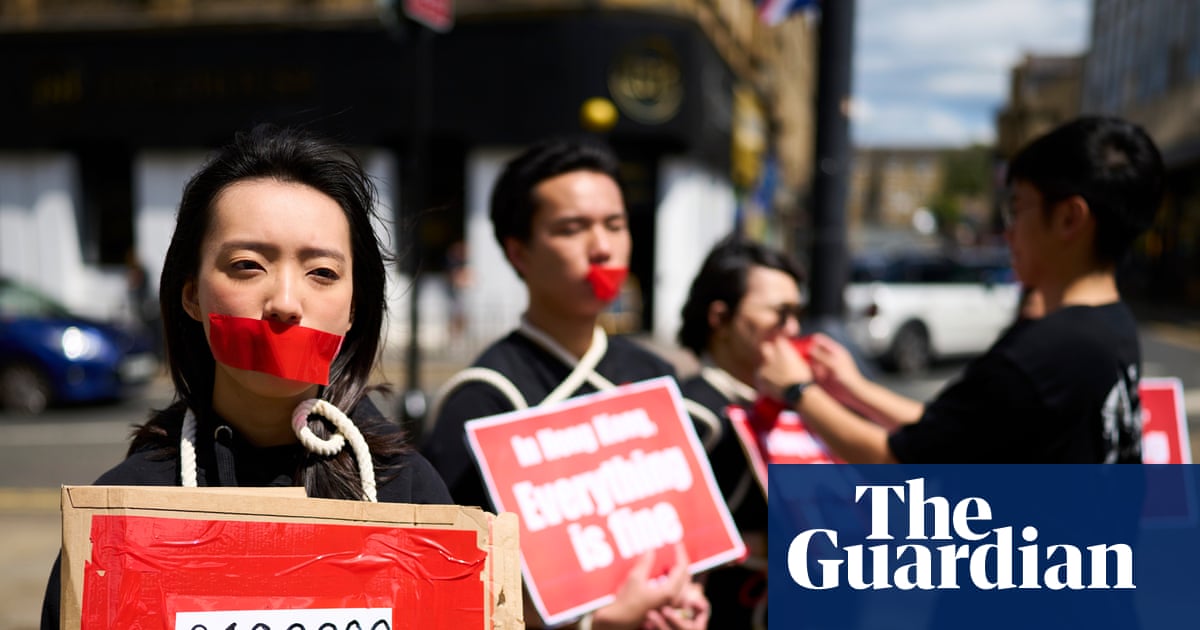Exiled Hong Kong dissidents say they fear UK government plans to restart some extraditions with the city could put them in greater danger, saying Hong Kong authorities will use any pretext to pursue them.
An amendment to UK extradition laws was passed on Tuesday. It came more than five years after the UK and several other countries suspended extradition treaties with Hong Kong in response to the government crackdown on the pro-democracy movement, and its imposition of a Beijing-designed national security law.
The UK Home Office says the suspension of the treaty made all extraditions with Hong Kong impossible “even if there were strong operational grounds” because it was still listed as a treaty state in the law. The amendment has redesignated Hong Kong as a non-treaty state, bringing it into line with other countries (including China) for extraditions assessed on a case-by-case basis.
The security minister Dan Jarvis has said London will “never allow” extraditions for political purposes. All requests are assessed by courts, and subjects have the right to appeal.
“This government is uncompromising in its commitment to human rights, the rule of law, and the protection of all individuals who reside in the United Kingdom, including the many Hongkongers who have chosen to make their lives here,” a Home Office spokesperson said.
But dissidents and advocates say they fear Hong Kong authorities could exploit the ad hoc process to target political figures.
About 220,000 Hongkongers with British national overseas status have fled to the UK, seeking residency. More have escaped to the US, Australia, Canada, and other countries, some as refugees. But Hong Kong has vowed to pursue overseas activists “to the end”, issuing arrest warrants and bounties for 38.
“Even if the current government does not intend to hand us over, we need binding commitments that this will never happen under any future government,” said Chloe Cheung, of the Committee for Freedom in Hong Kong Foundation.
Carmen Law, a former Hong Kong politician now living in exile in London, said UK assurances that requests must be “non-political” were easily undermined.
“When you are the subject of an international arrest warrant and a bounty – a clear act of hostile state behaviour on UK soil – a statement of commitment is simply not enough.”
Chinese and Hong Kong authorities have a track record for laying non-political charges against dissidents, sometimes to then switch out the allegation. Supporters of Jimmy Lai, the Hong Kong media tycoon and leading pro-democracy activist, have labelled his lease fraud convictions as politically motivated and trumped up. Lai is on trial for national security offences.
“The idea, after watching the Jimmy Lai show trial, that we should be sending anybody back to China is an absurdity,” said the Conservative MP Iain Duncan Smith.
Luke de Pulford, cofounder of the Inter-Parliamentary Alliance on China, called for the government to offer a “dedicated and concrete appeal mechanism to ensure nothing slips through the cracks”.
In 2021 the UK government reportedly warned activists against travelling to countries with extraditions agreements with Hong Kong.
Feng Chongyi, a dissident academic now living in Australia, said before the amendment passing that he would avoid the UK if it did. Feng is wanted in Hong Kong for allegedly supporting a “subversive” organisation. “Making such amendments is a clear indication that the UK government is willing to compromise and cooperate with Beijing,” he said.
The amendment’s timing has also drawn suspicion, tabled amid continuing efforts by the UK to negotiate a trade deal with China, and a softer UK government approach towards Beijing.
In 2020 Keir Starmer, then opposition leader, welcomed Boris Johnson’s suspension of the extradition treaty, labelling it “a step in the right direction”.
Emily Lau, a veteran pro-democracy politician and former legislator who remains in Hong Kong, said there was “no doubt” the UK government needed to seek trade deals to address the state of its economy. “I have no problem with countries doing business, but the UK must not sacrifice the rights of the Hong Kong people,” she said.
The Home Office said extraditions were governed “by strict legal safeguards and operates entirely independently of any trade negotiations or economic considerations”.

